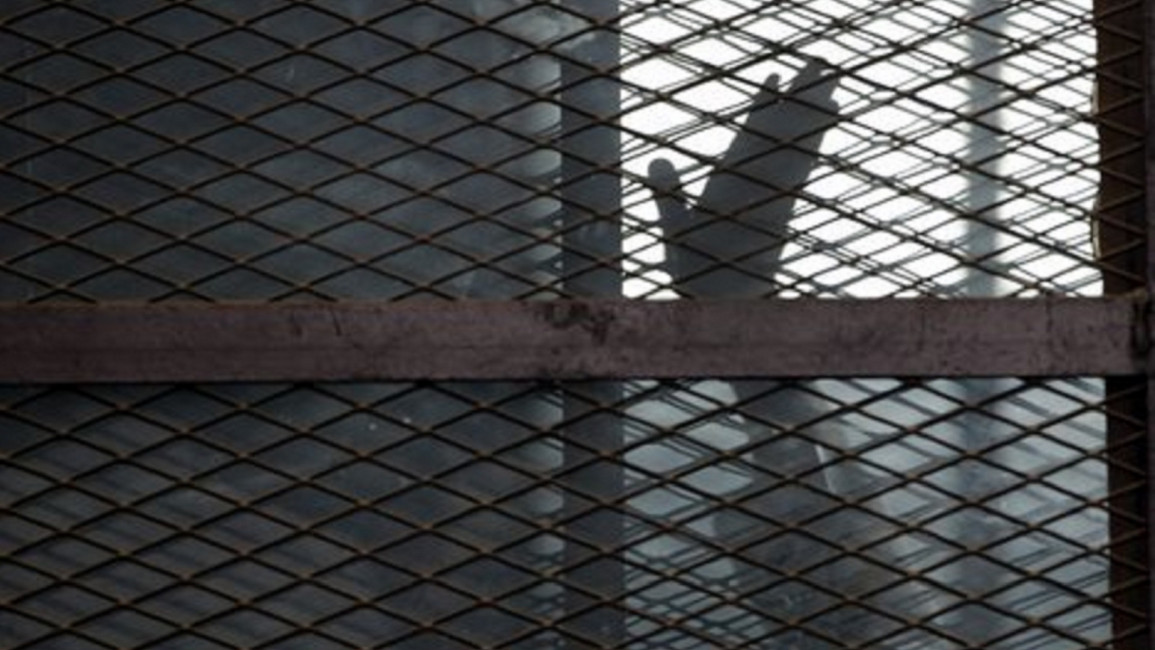
In Sisi's Orwellian Egypt, no one is safe
The news that 19-year-old Egyptian social media influencer and archaeology student Haneen Hossam has had her 10-year-sentence for ‘human trafficking’ reduced to three years is to be welcomed.
But the fact that she’s in prison at all under such ludicrous charges is bad news for Egyptian women and all those who support civil liberties in a near-totalitarian state.
In 2020, Haneen, along with fellow social media influencer and satirist Mawada Eladhm who is currently serving a six-year sentence, was arrested on the nonsensical charges of ‘inciting debauchery’ and ‘violating public morals’, but these were later replaced with the much more serious ‘human trafficking’ charge. This charge relates to Haneen’s promotion of the video creation platform Likee, where she instructed young women on how to earn up to $3000 for creating video content.
Haneen’s intentions were strictly entrepreneurial and had nothing to do with ‘prostitution’ or any sexual content, let alone ‘human trafficking’, as is the charge of the regime.
''The Sisi regime, since it came to power in 2013 in an anti-democratic, counter-revolutionary coup, has already got a firm stranglehold over the internet activities of Egyptians.''
The Sisi regime, since it came to power in 2013 in an anti-democratic, counter-revolutionary coup, has already got a firm stranglehold over the internet activities of Egyptians.
Under the 2018 ‘cybercrime law’, the regime has the power to block and censor any website it deems to be a threat to ‘national security’, while it monitors and surveils the personal social media accounts and internet activity of all Egyptians.
These are just some of the means that the Sisi regime have used to ruthlessly police post-revolutionary Egypt, cutting off anything even remotely deemed to be subversive to its agenda.
This includes detaining people like the Australian-Egyptian Waled Youssef for 10 months in 2020 for ‘liking’ a Facebook post of a now imprisoned pro-democracy Egyptian presidential candidate in 2012.
Over the course of Sisi’s reign of terror, the regime has imprisoned more than 60,000 political prisoners. Anyone deemed to be openly supportive of Mohamed Morsi - Egypt’s first and probably last democratically elected president who was imprisoned without trial and killed in custody - as well as thousands of other activists and journalists from all kinds of political backgrounds, are imprisoned, disappeared or executed.
What is less well understood is the imprisonment of people like Haneen, who aren’t even overtly political, let alone critical of the Sisi regime. It is likely that they fear people like Haneen precisely because they are influential and have identities beyond the scope of traditions of patriarchal control that the regime reinforces, including controlling what women wear and say.
Sisi came to power under the absurd guise of defending ‘secularism’ and reinforcing so-called ‘western values’, including feminism - in contrast to allegedly anti-western groups like the Muslim Brotherhood.
But the reality is that his regime, like almost all tyrannies, wants to keep Egypt in stasis, with misogynistic and sexist social and cultural views on and practices against women being buttressed.
Though these views and practices have existed in Egypt for hundreds of years, the January 25 revolution saw many of Egypt’s backward norms challenged – issues relating to women’s rights, safety and liberties were, for the first time, coming to the fore. Thus, while feminist activists have been ruthlessly and fatally repressed, even women such as Haneen, merely behaving in ways that the regime sees as subverting Egypt’s wall of misogynistic norms, are fair game for persecution.
Since 2020, as part of a much wider ‘morality’ persecutions against prominent Egyptian women, spanning TikTok stars, pop singers and belly dancers, at least 15 female social media influencers have been targeted for arrest and imprisonment.
Perhaps worst of all was the arrest of a 17-year-old girl after she uploaded a video on TikTok recounting, with her face still bruised and beaten, her experience of being gang raped. Within 24 hours, she had been arrested with the prosecutor general vindictively stating publicly that ‘she deserves to be punished’.
Sexual assault against women is endemic in Egypt, and while the regime has made superficial attempts to tackle the problem, it has spent more time persecuting and smearing the victims and witnesses of it.
Again, it ought to be celebrated that Haneen will allegedly be released sooner rather than later, but the fact that the charge of ‘human trafficking’ remains against her name sets a worrying precedent. Most prisoners in Egypt won’t be able to attract the same kind of media attention that Haneen did and thus the message of the regime to young women is clear: stay in line or face prison.
And prison in Egypt can be an informal death sentence. At least 1000 Egyptians have died in custody since the coup in 2013, with the most recent being the strange death of liberal economist and Sisi critic Ayman Hadhoud, who was forcibly disappeared in February. Later this month, his family were told to retrieve his body from a mental health institution. The regime refuse to release official details of his death, instead blaming it on a chronic heart condition.
These kinds of deaths in custody are now common in Sisi’s Egypt, with many going unrecorded by fearful families. This is the price that anyone, whether a social media influencer or critical economist or even former democratically elected presidents, could pay for their conscious or unconscious dissent.
As ever with Egypt, all of this comes at a time when the liberal democratic West is continuing to support Sisi, with the European Union jointly chairing the Global Counter-Terrorism Forum with Egypt. European leaders have openly praised Sisi despite knowing full well that his regime was one of unending authoritarian terror and kleptocracy.
Sisi’s entire criminal enterprise is justified, and funded by the US, in the name of ‘counter-terrorism’, but we all know it’s people like Haneen, Mawada and Ayman that Sisi views as the real terrorists.
The so-called ‘civilised’ world knows this too, but it simply doesn’t care.
Sam Hamad is a writer and History PhD candidate at the University of Glasgow focusing on totalitarian ideologies.
Join the conversation @The_NewArab.
Have questions or comments? Email us at: editorial-english@alaraby.co.uk.
Opinions expressed in this article remain those of the author and do not necessarily represent those of The New Arab, its editorial board or staff.



